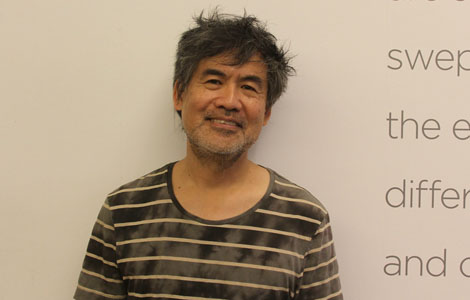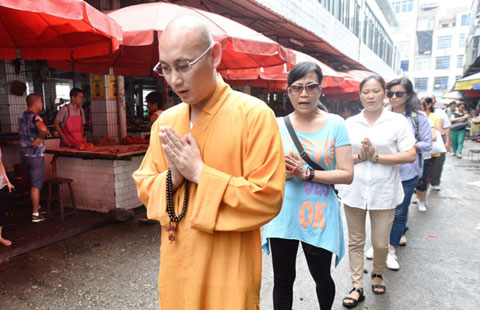Less is more for de-clutter movement
Updated: 2014-06-25 07:03
By Sun Ye (China Daily)
|
||||||||
Chen Ying was unhappy.
She was an elite graduate student with honors, but she felt stifled by academia. Her relationship with her mother was strained and she hated her wardrobe, full of clothes covered in chiffon and lace that she had bought to fit in with the crowd.
"I was living under a dark, dark cloud," the 26-year-old says.
That is, until last fall, when a thin book changed her life. It was Danshari, or "de-clutter", the series of self-help books by Japanese writer Hideko Yamashita. The series came to China in May.
Danshari asks the reader to shun clutter and stop storing unwanted stuff, in the hope of leading a life unhindered by things that stop you from following your passion. The first task is to clear one's living space.
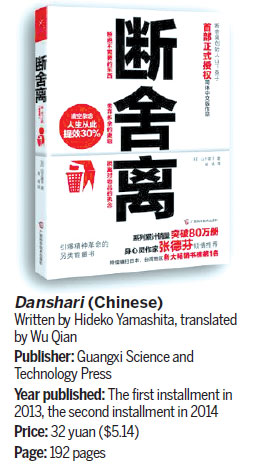
Chen, who has since become a translator of the series, started with her bookshelves. She threw away hundreds of books ("Some of them I worked really hard to acquire as they were rare scholarly papers from abroad"), all the while asking herself - "Do I want this?"
After several days of cleaning, she was left with only about 100 books - none of them related to her field of study. She threw out all of her certificates of merit except for one that declared her an outstanding young writer.
"And I suddenly felt the pressure and depression lift from my shoulders," Chen recalls. "And I finally decided to drop out of school and pursue what I really loved all along, writing and translating."
When she settled to pursue her dream, her fraught relationship with her mother also eased. "I told her that I've studied all these years for her but now I'll do what I want. I hope she will stand by my choice."
Her mother did, and even started to take on some of Chen's advice on de-cluttering.
"At it's core, it is a practice of making choices and deciding on the things one really needs," Chen says.
Danshari, even before it was translated into Chinese, has inspired many Chinese women who found themselves caught in a trap of consumerism.
"Learn to do subtraction and enjoy freedom, that's the essence of the idea," says Hideko Yamashita, who has heard many similar tales of drastic change from her Chinese followers.
In Japan, as well as China, people are in an age of overload of everything and so they become burdened, says Yamashita, who has visited China twice and experienced a country that is "crammed" with "explosive growth".
"Having so many things will close you off from the happiness you are really looking for. That lifestyle has got to change," Yamashita wrote.
Zhong Li, a 50-year-old training management executive, says she has found peace through danshari.
"Nobody living in this age can get away from anxiety. There are just too many things for you to worry about," she says. "But practicing danshari is like doing yoga for one's spiritual life and I'm so much happier afterwards."
She has dumped 50 percent of all her belongings, which is typical for practitioners, many of whom have already set up online clubs to share their experiences and trade things they no longer want.
"If you have ever opened a full closet and found nothing to wear, or stayed with a boyfriend you are no longer in love with, let go of them and try danshari," Yamashita told a packed room of anxious urbanites on a recent visit to Beijing.
"Get rid of the unwanted things so you can build up what you really want."
As for Chen, her wardrobe now consists of two changes of comfortable clothes and a wind breaker. She also has unending creative ideas to put down on paper.
"I'm happy and I feel things so much more," she says.
sunye@chinadaily.com.cn
(China Daily 06/25/2014 page19)

 Council of Fashion Designers of America Awards
Council of Fashion Designers of America Awards
 Fan Bingbing, first Chinese actress in Barbie Hall of Fame
Fan Bingbing, first Chinese actress in Barbie Hall of Fame
 Awarding ceremony of 2014 hito Pop Music held in Taipei
Awarding ceremony of 2014 hito Pop Music held in Taipei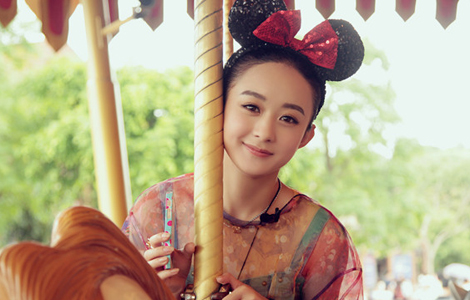
 Zhao Liying's photo shoot for Children's Day
Zhao Liying's photo shoot for Children's Day
 'Taken 2' grabs movie box office crown
'Taken 2' grabs movie box office crown
 Rihanna's 'Diamonds' tops UK pop chart
Rihanna's 'Diamonds' tops UK pop chart
 Fans get look at vintage Rolling Stones
Fans get look at vintage Rolling Stones
 Celebrities attend Power of Women event
Celebrities attend Power of Women event
Most Viewed
Editor's Picks

|

|

|

|

|
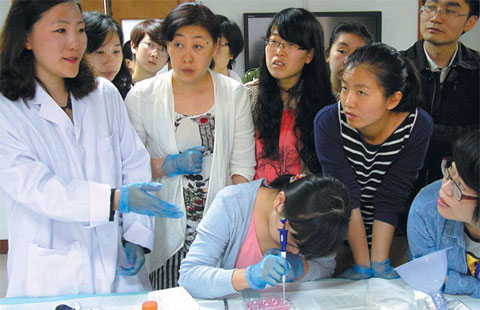
|
Today's Top News
Six Flags joins theme-park rush in China
Hundreds held in Xinjiang terror blitz
Putin, Obama discuss Ukraine crisis over phone
Factory output estimate indicates stability
US-China ties get a boost from grassroots
US, not China, key to Peninsula issue
Crackdown urged on Web terror content
Guinness record for plank
US Weekly

|

|

